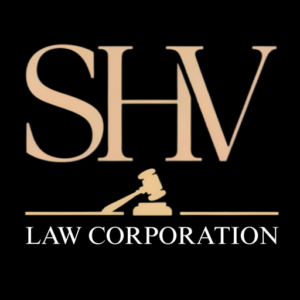H-1B Visa Lottery Process 2025: A Complete Guide
The H-1B visa is one of the most sought-after non-immigrant work visas in the United States, allowing U.S. employers to hire foreign professionals in specialized occupations. Due to the high demand for this visa and the annual numerical cap, the U.S. government conducts an H-1B lottery system to randomly select beneficiaries. This article provides a detailed step-by-step guide on the H-1B visa lottery process for 2025, eligibility criteria, registration procedures, important deadlines, and tips for improving selection chances.
Step 1: Understanding the H-1B Lottery System
The H-1B visa is subject to an annual numerical cap imposed by the U.S. Congress:
- Regular Cap: 65,000 visas for applicants with at least a bachelor’s degree
- Master’s Cap (Advanced Degree Exemption): Additional 20,000 visas for applicants with a U.S. master’s degree or higher
Because the number of H-1B petitions significantly exceeds the available visas, the U.S. Citizenship and Immigration Services (USCIS) conducts a random lottery system to determine which petitions can proceed to adjudication.
Step 2: H-1B Lottery Registration Timeline for 2025
The USCIS follows a multi-step process to select and process H-1B petitions. Below are the key dates and steps for the H-1B visa lottery in 2025:
- March 2025: Online registration opens for employers to submit H-1B beneficiaries.
- March 2025: Registration closes, and USCIS conducts the lottery.
- April 2025: USCIS notifies selected applicants.
- April – June 2025: Selected applicants file complete H-1B petitions with USCIS.
- October 1, 2025: Approved H-1B employees can begin working in the U.S.
It is essential that employers complete the registration accurately and on time to avoid disqualification.
Step 3: H-1B Online Registration Process
Employers must register each H-1B applicant in the USCIS online registration system before submitting a full petition.
How to Register for the H-1B Lottery:
- Create an Employer Account: Employers or their legal representatives must create an account on the USCIS portal.
- Submit Beneficiary Information: Employers must enter basic details for each H-1B candidate.
- Pay the Registration Fee: The H-1B registration fee is $10 per applicant.
- Wait for the Lottery Results: If selected, the employer will receive a selection notice allowing them to file a full petition.
Employers can submit multiple registrations, but each beneficiary can only be entered once per employer.
Step 4: Filing the H-1B Petition (If Selected in the Lottery)
If an applicant is selected in the lottery, the employer must submit a complete H-1B petition (Form I-129) with supporting documentation within the designated filing period.
Required Documents for the H-1B Petition:
- Form I-129 (Petition for a Nonimmigrant Worker)
- Labor Condition Application (LCA) approved by the Department of Labor
- Employer Support Letter detailing job duties, qualifications, and salary
- Copies of the applicant’s passport, degree certificates, and transcripts
- Evidence of work experience and specialized knowledge
Employers can choose Premium Processing, which guarantees a response from USCIS within 15 calendar days for an additional fee.
Step 5: H-1B Cap-Exempt Petitions
Some employers are not subject to the H-1B lottery cap. Cap-exempt employers can file H-1B petitions at any time. These include:
- Nonprofit organizations affiliated with universities
- Government research institutions
- Institutions of higher education
If you qualify for a cap-exempt H-1B visa, you can bypass the lottery process and apply directly.
Step 6: Common Reasons for H-1B Lottery Denial and How to Avoid Them
Not all applicants who register for the lottery get selected, and even selected applicants may face rejection due to errors.
Reasons for H-1B Lottery Rejection:
- Duplicate Entries: If the same employer submits multiple registrations for the same beneficiary, all entries may be disqualified.
- Incomplete or Incorrect Registration: Errors in names, dates of birth, or employer information can lead to disqualification.
- Missed Deadlines: Late registrations or delayed filing of the full petition can result in rejection.
Reasons for H-1B Petition Denial (After Lottery Selection):
- Failure to Meet Specialty Occupation Requirements: The job must require a bachelor’s degree or higher in a specialized field.
- Low Salary Offer: The employer must offer a salary that meets the prevailing wage set by the Department of Labor.
- Insufficient Employer Documentation: Employers must prove their financial ability to pay the applicant’s salary.
Step 7: What to Do If You Are Not Selected in the H-1B Lottery
If you are not selected in the lottery, you still have alternative visa options:
- Cap-Exempt H-1B Visa: If you qualify to work for a cap-exempt employer.
- O-1 Visa: For individuals with extraordinary ability in sciences, arts, education, business, or athletics.
- L-1 Visa: For employees transferring within a multinational company.
- F-1 OPT or STEM OPT Extension: If you are on an F-1 visa, you may qualify for an Optional Practical Training (OPT) extension.
It is important to plan ahead and explore alternative immigration pathways if you are not selected in the lottery.
Conclusion
The H-1B visa lottery process is a competitive and complex procedure that requires careful planning and attention to deadlines. By understanding the steps involved, submitting a complete and accurate registration, and exploring cap-exempt or alternative visa options, applicants can improve their chances of working legally in the U.S.
At SHV Law Corporation, we assist employers and foreign professionals in navigating the H-1B lottery process, preparing petitions, and exploring other work visa options.
If you have any questions about immigration law, your case, or our services, we’d love to hear from you. Simply fill out the form below, and we’ll get back to you as soon as possible.
Shams Vahedi, Esq.
U.S. Immigration Attorney
Admitted to New York State Courts & Federal Courts
Practicing Exclusively in California
